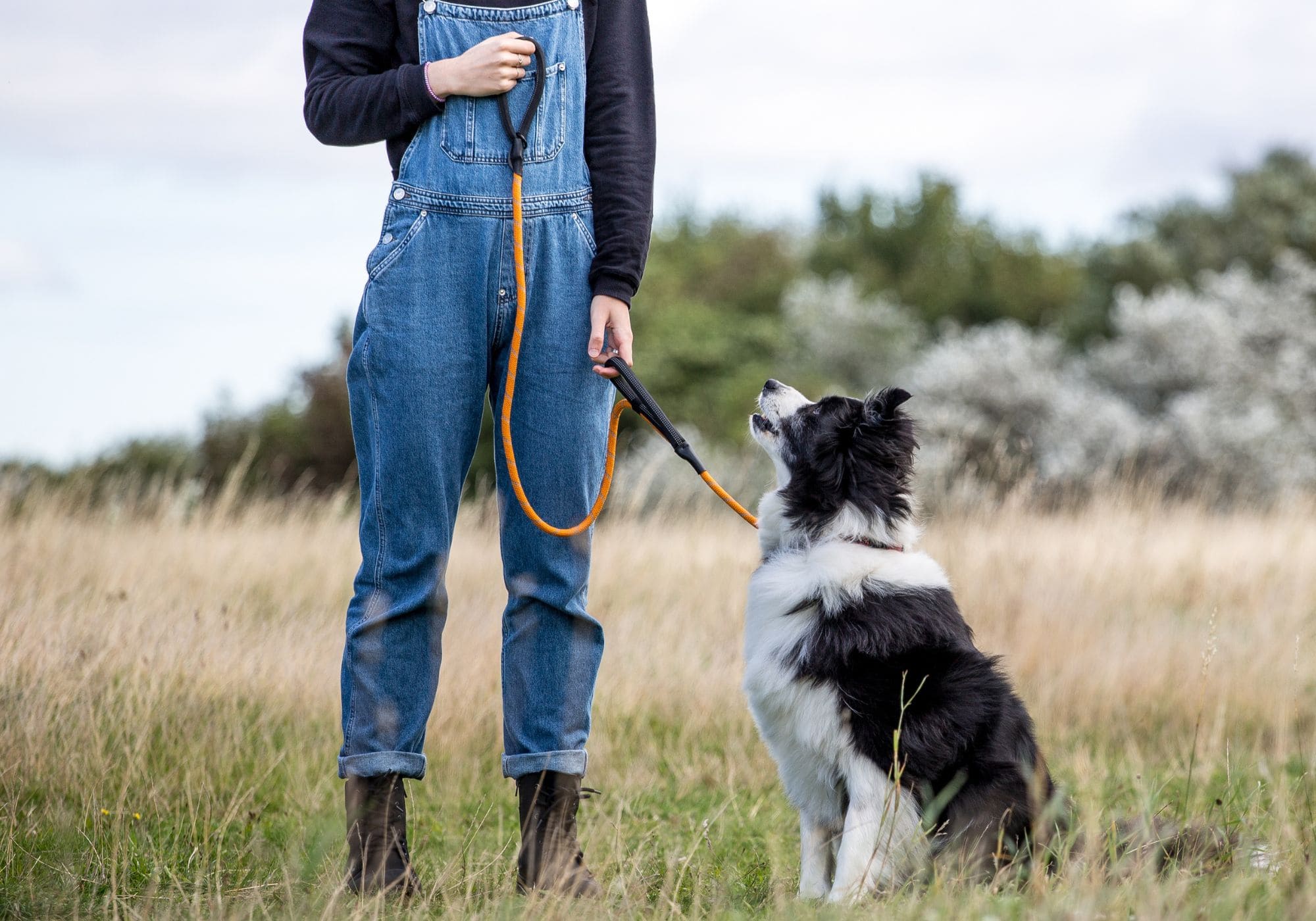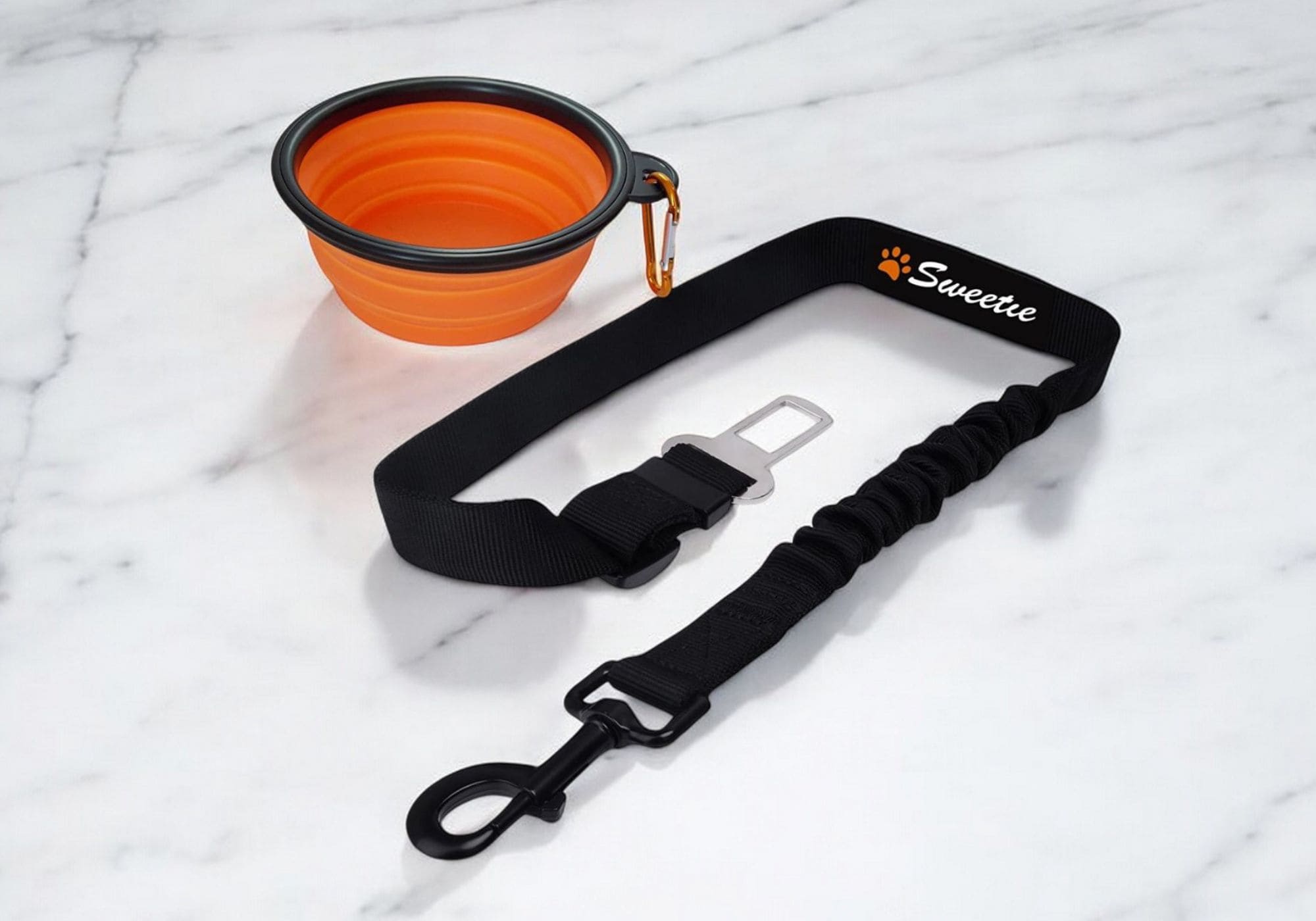Why Dogs Bark at Night?
You're sound asleep after a stressful day when a barking noise wakes you up. Drunk on sleep, you drag your feet towards the source of the sound. And there he is, Scrappy is barking at the door again.
It's been happening for a while now, and soon your neighbours will file a complaint. You wonder to yourself, "Why do dogs bark at night?"
Often dogs bark at night in response to unfamiliar noises. These disturbances may be caused by wildlife, intruders, or passersby who mean no harm. A dog’s barking is its way of alerting us about suspicious activity.
Other reasons include loneliness and boredom, the need to pee or poop, hunger, pain, and separation anxiety. This article will explore the causes of nighttime barking, potential solutions, and how to handle the behaviour.

Common Causes of Nighttime Barking in Dogs
Nighttime barking is common among dogs. Many dog parents even dismiss it as normal canine behaviour. Dogs bark for multiple reasons, including fear, loneliness, and hunger. Below are common causes of nighttime barking in dogs.
Sensitivity to Noise
Dogs are known for their excellent hearing. Dogs can hear sounds at much higher frequencies in comparison to humans. Sudden and unfamiliar noises can trigger barking in dogs. Sometimes these noises are so faint that we may not hear them.
You can tell that a dog is distressed by noise when she is trying to find the source of the sound with her ears. You can also notice clinginess upon hearing a loud bang.
Possible SolutionsA noise that contains all frequencies across the audible spectrum is called white noise. Since white noise spans different sound bands, it can drown other sounds your dog is sensitive to. You can find up to 10 hours of white noise on YouTube.
Loneliness and Boredom
Do you ever wonder what happens when you leave the house for work every morning? I'll tell you. Your dog grows lonely and bored.
To cope, dogs tend to nap during the day and stay awake at night. While this sleeping pattern is not particularly harmful to canines, it does leave them with a lot of unspent energy.
To make up for your daytime absence, your dog will bark for your attention.
You can tell your dog suffers from loneliness and boredom when it chews on objects like furniture and shoes. It may also make a mess while you are away.
Because your dog missed you during the day, she becomes excited to see you when you return. Canines can show their excitement by jumping on you and your guests.
Possible SolutionsTake time to give your dog the necessary attention and exercise. It can be as simple as an evening walk around the neighbourhood or a vigorous game of fetch at the end of a long day. Find creative ways to tire him out before you retire to bed.
Crate training can help dogs manage stress and anxiety. Keep the crate with you in your bedroom at night. Also, consider leaving them with a familiar toy while in a crate.

Need to Poop or Pee
Like humans, dogs need to relieve themselves. Sometimes these urges emerge in the night. To gain your attention, your dog will bark. Frequent bathroom breaks are common among pups due to underdeveloped bladders.
You can tell a pup needs to pee when it's scratching at the door. Noticeable restlessness or whining is another indicator to look out for.
Possible SolutionsPotty train your dog so that it can gain some independence in bathroom matters. Tools like crates and pee pads are effective tools in potty training. But for young pups who lack control over their underdeveloped bladders, you will have to wake up and escort them outside. And hey, do not forget your poo bag holder.
Hunger and Dietary Issues
Dogs can also bark when they are hungry. Hunger can arise from long hours between meals, insufficient portions, or disliking a particular meal. A dog will refuse to eat a meal she doesn't like. Unfinished meals do not always mean full stomachs.
Ensure that the food you feed the canine is both nutritious and palatable. Otherwise, the pup will suffer from malnutrition and inconsistent bowel movements.
Possible SolutionsAsk a qualified vet about your dog's nutritional needs. The animal specialist should be able to recommend a dietary plan tailored to your dog's age and weight.
Consistent food will keep your dog full through the night. An easy way of implementing this strategy is by purchasing a timed dog feeder.
Pain and Illness
Barking can also be a sign of pain and distress. Dogs sometimes feel sore from uncomfortable sleeping positions or inappropriate sleeping spaces.
Illnesses and allergies can also be a source of discomfort at night. Canines express pain through barking and whining.
Older dogs are particularly prone to barking at night because they may suffer from Canine Dysfunction Syndrome (CDS). This condition is the canine equivalent of Alzheimer's Disease. A dog suffering from CDS may appear lost, dazed, or confused for prolonged periods.
Signs of pain in dogs include limping or a reluctance to walk, noticeable changes in appetite, and agitation.
Possible SolutionsConsult a qualified veterinarian about appropriate treatment options. If the pain stems from food allergies, consider adopting hypoallergenic dog food. This feed solution is appropriate for dogs with sensitive tummies.
Separation Anxiety
Dogs are social yet loyal animals. Separation from you, the pack's leader, could result in severe anxiety issues. Separation anxiety can also occur when you and your dog sleep in separate rooms.
Nighttime barking and howling are signs of separation anxiety. Other indicators include pacing around, inappropriate urination, scratching, and chewing objects.
Possible SolutionsCalming dog supplements are effective in soothing canines with separation anxiety. These supplements can come in the form of capsules or hemp drops. Consult with your vet about the appropriate solution for your dog.
Let your dog know it has your attention. An effective way of achieving this is by dedicating time to the canine. You can take walks and play with the dog during this time.
Once your dog is comfortable sleeping in a crate, you can set the crate in your room.
Improper Crate Training
During crate training, it's normal for puppies to succumb to fear and loneliness. In displeasure, the cuties may bark and bite on the crate. Proper crate training helps a pup overcome anxiety and prevents them from adopting negative behaviour as they mature.
Possible SolutionsLet the dog stay in the crate for short intervals. Start with 10-minute stents and work your way up.
Reward the canine with treats for agreeing to stay in the crate. You can also play crate-related games to demystify the crate. The dog shouldn't view the crate in a negative light.
Correcting Nighttime Barking in Dogs
Nighttime barking in dogs is a behaviour that you can correct. Below are some practical tips to stop your dog from barking at night:
Provide a Comfortable Sleeping Environment
A dog will sleep better in a comfortable sleeping space. A sound sleeping environment should protect the dog from the elements. If your dog is sleeping outside, consider inviting him in during bedtime.
The space must also have soft bedding. Below are some appropriate sleeping spaces for dogs:
- Dog crates
- Dog Bed
- Your Bed

Increase Physical Exercise
Physical activity is an effective way of tiring out your dog before bedtime. Set aside about an hour for fun activities and games. Find exciting toys and play creative games with your dog.
Ignore the Barking
Sometimes dogs bark at night to seek your attention. If this is the case, you should ignore the barking. Before settling on this strategy, you should investigate by eliminating other causes of barking.
Even though it sounds cruel, ignoring the barking is an effective way of letting the dog know that you do not appreciate the disruptive behaviour.
What to Avoid When Handling Night Barking
Below are some counterproductive techniques that you should avoid.
Avoid Yelling at the Dog
Yelling is the human equivalent of barking. Yelling at a dog will only encourage it to continue the behaviour. Also, avoid using violence as a mode of punishment. Violence will only make the dog timid and more prone to howling.
Be firm with your commands and employ positive reinforcement. For example, instead of yelling at a barking dog, reward it with treats on nights when it chooses to be calm and quiet.
Avoid Inconsistent Training
Condemning a habit one day and rewarding it the next is no way to train a dog. Training is only effective when you are consistent with your methods. Getting your family involved is also helpful in discouraging the behaviour.
Avoid Using Muzzles While You're Away
Muzzles are uncomfortable for dogs because they inhibit panting, a natural way to regulate body temperature. Using muzzles for prolonged periods is harmful to dogs.
Conclusion
While barking is natural to dogs, it can be disruptive at night. Persistent barking can rob you of your sleep and sour your relationship with your neighbours. Like any other canine behaviour, you can correct nighttime barking.
Identifying the root cause of the barking will help you address the behaviour and stop it from persisting. Remember, one less barking dog means a peaceful night for your household and your neighbourhood.






That’s very interesting thank you my puppy barks around 7,pm so he now gets a little walk round block or thinking games
Leave a comment